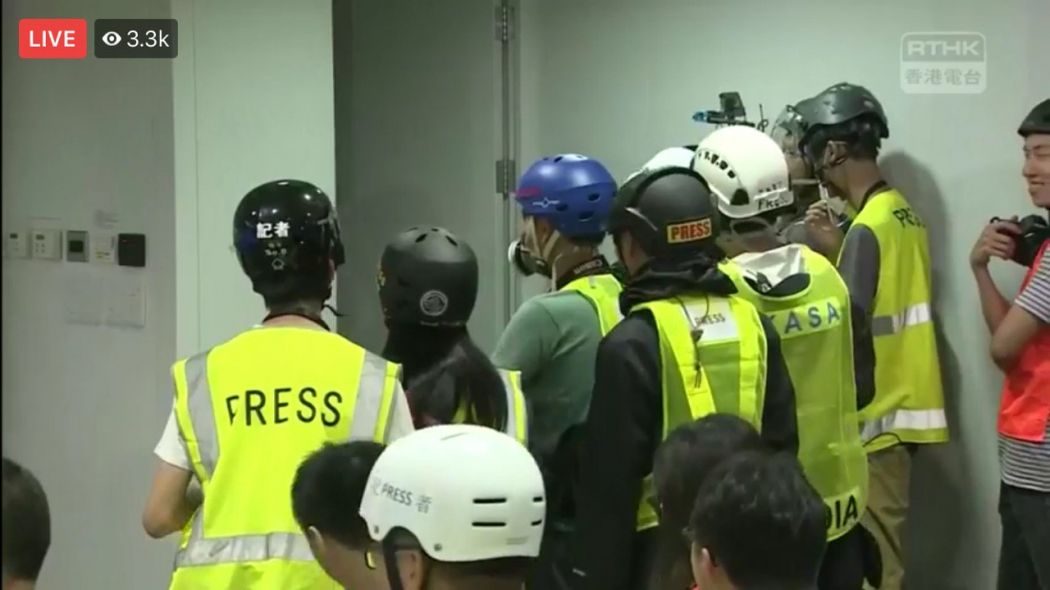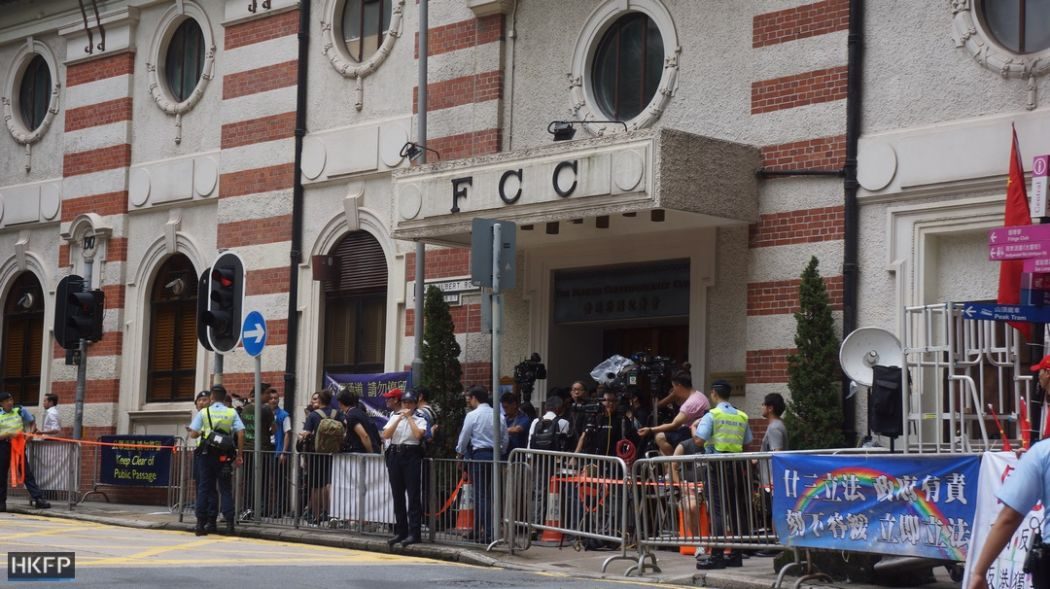The ongoing journalists’ visa war between the United States and China shows no sign of abating. Rather than easing, it seems headed towards its end game.
It began back in February when the US State Department ordered five Chinese news outlets to register as foreign entities and forced them to reduce their staff by roughly 40 percent. Beijing promptly expelled three journalists from the Wall Street Journal, using an op-ed published by the Journal as an excuse even though the journalists had nothing to do with the piece.

Since then, the situation has further spiralled downwards, with both sides weaponising journalists’ visas as a way to retaliate against the other’s moves. As the tit-for-tat between Washington and Beijing escalated, journalists found themselves caught in the middle while just trying to do their jobs. As Washington continued imposing restrictions on Chinese journalists in the US, China made moves to expel 17 journalists in the first half of this year, according to the Foreign Correspondent’s Club of China.
In the last week, the visa war has taken a more dramatic and ominous turn.
It began with the news on September 6 from The New York Times that Beijing had stopped renewing journalist visas for foreign journalists working in mainland China for American news organisations. After the Times story was published, Bloomberg, CNN and the Wall Street Journal all reported that staffers were affected, as is at least one photojournalist for Getty Images.
Beijing has also implied that it will expel US journalists if Washington takes any further action against Chinese news media in the United States. The journalists were given letters from the Foreign Ministry that allows them to continue to work and live in China through to November 6.
In early May, the US Department of Homeland Security put into effect a rule that limited Chinese journalists’ visas to 90 days, instead of the previously granted open-ended, single-entry visas. Those original 90-day visas, which expired August 7, were not outrightly renewed, but given an extension of sorts when the US Government did not move to expel the journalists. This means that they now expire in early November, the same time frame that Beijing has given to the foreign journalists from American outlets.

And now Australia has also been caught in the mix. After Cheng Lei, an Australian national and anchor for CGTV was arrested last month, the last two Australian journalists in China – Bill Birtles, the Australian Broadcasting Corporation’s Beijing correspondent, and Mike Smith, the Shanghai correspondent for the Australian Financial Review, were forced to return to Australia. The two were questioned by police about Cheng Lei but were allowed to leave the country after a deal was reached between officials of the two countries.
Beijing has also accused Australia of harassing its journalists after authorities there searched the homes of four Chinese state media reporters, and seized items in June.
The overall relationship has been rocky at best since Australia called for an inquiry into the source of Covid-19, and Beijing threatened to cut trade with the country.
As with the souring relationship between the United States and China, the issues surrounding journalists seem to be a by-product of wider international issues. Journalists are being used as pawns in a much larger game.

Where all of this leaves journalists in Hong Kong remains to be seen, but it doesn’t look promising. One just needs to look at the case of New York Times journalist Chris Buckley. Buckley was denied a visa in mainland China and subsequently in Hong Kong also, depriving him of the ability to work in either place.
The Foreign Correspondents’ Club in Hong Kong has yet to receive definitive answers to letters to the Director of Hong Kong Immigration about the status of journalists’ visas in the city, a fact which does not bode well for journalists. If the government in Hong Kong won’t give direct answers to direct questions about how journalists’ visas are being processed and who is doing the processing, how is one to know if a) their visa will be renewed and b) how many more won’t be getting renewals?
Combine those events with the statutes in the national security law and it is not difficult to see how similar episodes are bound to happen again in Hong Kong.

Freedom of the press is enshrined in the Basic Law. It is one of the hallmarks of Hong Kong and supports the city’s status as a global hub. As the tenets of press freedom fall, I fear the city will fall with them. If the news organizations reduce their presence in the city, or pull their staff out altogether, how long will it be before global businesses do the same? If they can make money in other cities with more open societies and a freer flow of news and information, it will only be a matter of time before they leave. As the journalists go, so will Hong Kong.
But for now we must wait to see what will happen in November and whether either side flinches in this international game of chess – which has global consequences for the journalists who can only sit and watch.
Support HKFP | Policies & Ethics | Error/typo? | Contact Us | Newsletter | Transparency & Annual Report | Apps
| HKFP is an impartial platform & does not necessarily share the views of opinion writers or advertisers. HKFP presents a diversity of views & regularly invites figures across the political spectrum to write for us. Press freedom is guaranteed under the Basic Law, security law, Bill of Rights and Chinese constitution. Opinion pieces aim to point out errors or defects in the government, law or policies, or aim to suggest ideas or alterations via legal means without an intention of hatred, discontent or hostility against the authorities or other communities. |
Help safeguard press freedom & keep HKFP free for all readers by supporting our team

More HKFP OPINION:
HKFP has an impartial stance, transparent funding, and balanced coverage guided by an Ethics Code and Corrections Policy.
Support press freedom & help us surpass 1,000 monthly Patrons: 100% independent, governed by an ethics code & not-for-profit.










